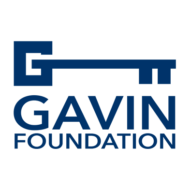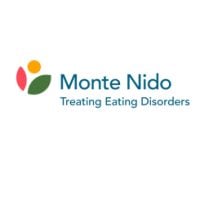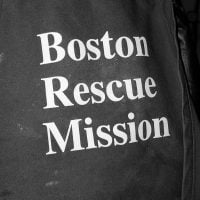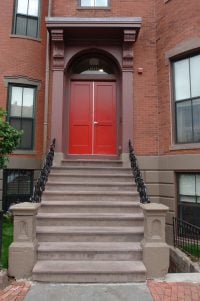Pine Street Inn
Drug Rehab Center in Boston, Massachusetts
- Opioid Addiction
- Dual Diagnosis
- Alcoholism
Pine Street Inn in Boston, MA provides comprehensive treatment for alcohol and opioid addiction, dual diagnosis, and offers inpatient, outpatient, and aftercare support services personalized to individual needs.
About This Massachusetts Facility
Pine Street Inn, located in Boston, Massachusetts, is an alcoholism, opioid addiction, and dual diagnosis treatment facility. With a capacity of 50 beds, this facility offers both inpatient and outpatient services to individuals suffering from alcoholism, opioid addiction, and dual diagnosis. Pine Street Inn also provides aftercare support to ensure the long-term recovery of its patients. Known for its commitment to helping individuals overcome addiction, this facility accepts private health insurance, making its services accessible to a wide range of individuals seeking help.
Pine Street Inn offers a variety of services and treatment methods for addiction and substance abuse. Their comprehensive approach includes addressing alcoholism, opioid addiction, and dual diagnosis through inpatient and outpatient programs. These programs are designed to provide individualized care and support for each patient, enabling them to overcome their addiction and achieve lasting recovery. Along with their treatment programs, Pine Street Inn also provides aftercare support, offering ongoing assistance and resources to help patients maintain their sobriety and transition back into everyday life.
Genders
Ages
Modality
Additional
Conditions and Issues Treated
Opioid abuse has become a national epidemic in the last decade. The US has one of the world’s highest rates of opioid use and abuse, as well as opioid-related deaths. Opioids are classified as Schedule II-IV controlled substances in the US due to their high potential for abuse.
Oxycodone, hydrocodone, methadone, and fentanyl are the most common Opioids and are commonly prescribed to treat pain. Tolerance to opioids develops over time, making life difficult, if not impossible, without them. Opioid users often obtain the drugs illegally. They can be drug dealers, friends, or family members who do not have valid prescriptions.
The desire for a more intense high than prescription opioids can quickly lead to heroin use. Heroin users are more prone to illness and death due to the high risk of overdose.
Many opioid addicts who seek treatment believe that the only way to overcome their addiction is through medical detox and long-term drug addiction rehab. To help patients wean off their addiction and reduce the risk of overdose, medication-assisted therapy (MAT) involves prescribing a replacement opioid. Doctors use MAT in conjunction with other anti-craving medications to help patients maintain recovery. Due to the high risk of relapse, MAT is often combined with individual and group counseling and social support programs.
When addiction and psychiatric issues co-occur, the addict’s recovery is more successful when both conditions are treated. A dual diagnosis refers to a condition in which the patient is diagnosed with two health issues: addiction and bipolar disorder. The most common therapies are psychotherapy, behavioral therapy, spiritual counseling, 12-step programs, and medication management.
Levels of Care Offered at Pine Street Inn
This center offers a variety of custom treatment tailored to individual recovery. Currently available are Aftercare Support, Dual-Diagnosis, Inpatient, Outpatient, with additional therapies available as listed below.
Inpatient treatment centers offer a safe, secure, and often medically supervised environment for drug or alcohol-addicted individuals. Many of these facilities are equipped to provide detoxification, treatment for co-occurring mental health disorders, and aftercare programs. The patient typically spends 28 to 30 days at the facility and will receive extensive drug counseling.
An outpatient treatment program is set up to help with alcohol or drug addiction or a co-occurring disorder. The patient must attend the facility for their therapy and other programs but can return home each night.
The frequency of mandatory attendance decreases after much of Pine Street Inn‘s program is complete.
Outpatient treatment is a recovery approach that allows recovering addicts to live at home while getting rehab for addiction
An outpatient can include day treatments which include attending group sessions one hour per week. A person living in an outpatient environment may be allowed the opportunity to work full time if they choose to and continue studies without interruption from drugs/alcohol.
Outpatient treatment is an option for people who want to maintain their careers and families. Outpatients live at home but attend treatment such as individual counseling, group counseling, or twelve-step meetings during the day.
Aftercare support is vital to the success of someone in drug or alcohol treatment. It involves assisting with entering a sober living home, getting career counseling or educational assistance and even getting the individual lined up with programs like AA and NA. This support helps recovering addicts readjust to normal day-to-day activities and maintain sobriety.
When a person is in drug or alcohol treatment, they have to increase their focus on themselves. They need to learn how to recognize the triggers that cause them to relapse and learn the habits that would benefit them if they were to be sober. This is all part of the growth in recovery, and aftercare is essential to that process.
Therapies & Programs
At Pine Street Inn , to learn from past mistakes and improve one’s situation, the recovering person meets individually with a therapist. The counselor or therapist will address addiction causes, triggers, mental issues, dual diagnosis, and aftercare plans during this time. This is a very intense and challenging process. Some clients find it easier to open up to someone other than family or friends who understand their struggles with addiction.
In group therapy, recovering addicts meet with a therapist and other people in recovery. Some groups are closed, meaning only people who share the same addiction or problem can attend. Others are open to anyone who wants to stop using drugs or drinking alcohol. Group therapy sessions typically focus on one topic each week or month so that recovering addicts can discuss issues they face daily.
Payment Options Accepted
For specific insurance or payment methods please contact us.
Is your insurance accepted?
Ask an expert, call (888) 674-0062
Additional Details
Specifics, location, and helpful extra information.
Boston, Massachusetts 2118 Phone Number(617) 892-7893 Meta DetailsUpdated November 25, 2023
Staff Verified
Patient Reviews
There are no reviews yet. Be the first one to write one.
Boston, Massachusetts Addiction Information
Massachusetts has one of the highest rates of drug abuse in the country. More than half a million Massachusetts residents abuse alcohol while more than 1.5 million use illegal drugs each year. This drug and alcohol usage is the cause of over 8% of all deaths in the state. In 2017, Massachusetts ranked in the top 10 of the states with the highest opioid overdose rates.
Boston has one of the highest rates of opioid abuse in the country. 1 in 10 residents struggles with substance abuse. Between 2013 and 2017, the number of opioid-related deaths in the area increased by 64%. There were over 1,100 overdose deaths in 2016. Detox is the first step in most treatment programs in Boston. This is where the person stops using drugs and allows their body to cleanse itself of toxins.
Treatment in Nearby Cities
- Mattapan, MA (4.8 mi.)
- Millbury, MA (37.2 mi.)
- Lynnfield, MA (13.6 mi.)
- West Yarmouth, MA (63.9 mi.)
- Newton, MA (7.4 mi.)
Centers near Pine Street Inn




The facility name, logo and brand are the property and registered trademarks of Pine Street Inn, and are being used for identification and informational purposes only. Use of these names, logos and brands shall not imply endorsement. RehabNow.org is not affiliated with or sponsored by Pine Street Inn.


